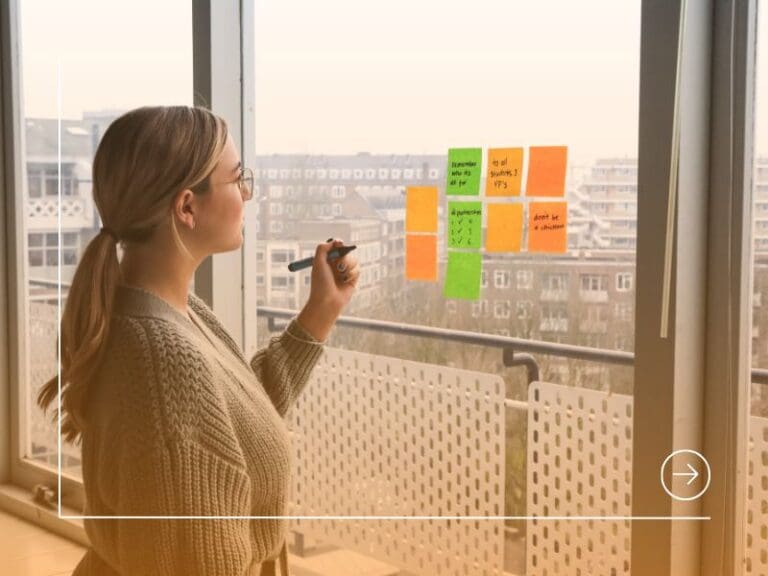
To help us answer these questions is coach, Fiona Hatton.
As a coach, Fiona supports women to live a happier life: through prioritising their wellbeing, doing more of what they love, and focusing on what really matters to them. She has worked with women who’ve gone on to change career, leave a toxic workplace, and make big life decisions about where (and how) they want to live.
Join the Yoco Studio community for free resources, useful tips and offers. Find out more about her coaching and yoga packages at http://www.yoco.studio.

If you have any questions for us – whether it be about work relationships, gaining confidence, or taking the leap into tech – you can ask us anything.
Hi SheCanCode,
I’ve been considering a career in coding, but I’m not entirely sure if it’s the right fit for me.
How can I assess whether coding aligns with my interests and strengths? Are there any introductory resources or strategies you recommend for someone looking to explore coding further before fully committing to this career path?
I’d appreciate any guidance you can offer. Thank you!
Hey there,
How exciting! A new direction has the potential to open up so many more new experiences. And it’s amazing that you’re thinking about what makes it a good move. Finding out more about it, weighing up the pros and cons, means that you’ll be making an informed decision about whether this is the right choice for you.
Here are some questions to think about while you’re considering your options.
What is drawing you to coding? What are you hoping to get from it?
Think about what’s driving you to make this change. Perhaps there’s something about coding that really sparks your curiosity, or maybe a career in coding could help you to reach other goals you’ve set yourself.
This is an important step to take before you do anything else. Understanding what’s motivating you to make the change, and what your expectations are will help you as you start to find out more about coding.
It’s a great reference tool too – if you realise that you’re interested in coding because you think it offers a chance to innovate for example, you can see how true that is as you look at new opportunities. And if it doesn’t quite match up to your expectations, you’re in a good place to decide whether that matters and whether you’re still interested.
How do your current skills and experience align?
Take a look at current job vacancies and check out what experience they’re asking for. Try SheCanCode’s amazing job page for a taste of what’s out there and see how your skills stack up.
Remember that if you’re not an exact match that isn’t always a deal breaker. Your experience so far is massively important, and you might find that you can easily transition into a coding role with what you already know.
If you find that you’re missing something crucial, SheCanCode has a wealth of resources to help you build your skills, from learning to write code to bootcamps and communities to join.
Who can you speak to about coding?
It often helps to speak to someone who’s already doing the role you’re interested in. Perhaps you could find someone more established in their coding career who can explain their journey.
Is there someone in your current organisation that you could speak to? Do you have any connections who already code? Or could one of your contacts put you in touch with someone? Don’t be afraid to ask your network to connect you with others, people are usually really happy to help!
Then think about what would be useful to know. Remember why you’re interested in coding in the first place. This is your opportunity to find out whether your idea of coding matches up to the reality.
I’m wishing you lots of luck as you work through this process – getting to know coding, understanding how your skills fit and making new connections will help you to feel confident that whatever choice you make is the right one. Do let us know how you get on!









